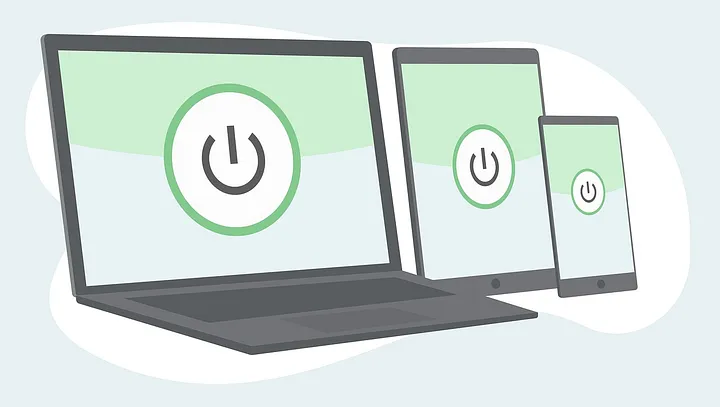In an age where digital footprints are nearly unavoidable, maintaining my privacy online has become a fundamental aspect of my research process. As a cybersecurity expert, I know that the information we seek can be sensitive, whether it’s academic research, personal interests, or professional projects. A Virtual Private Network (VPN) is my go-to tool for securing my online activities and ensuring that my research remains confidential. Here’s why I choose to use a VPN for private online research.

The Anonymity Factor
One of the primary reasons I rely on a VPN is the anonymity it provides. When I connect to the internet through a VPN, my IP address is masked, making it significantly harder for third parties to track my online activities. This feature is particularly important during research sessions where I might be exploring topics that could draw unwanted attention or scrutiny.
By using a VPN, I can browse the web without disclosing my geographic location or identity. This anonymity allows me to access information freely without the worry of being monitored by advertisers, government entities, or any other prying eyes.
Data Encryption
Another critical advantage of using a VPN is the robust data encryption it offers. With a VPN, all data transmitted between my device and the VPN server is encrypted, meaning that even if my traffic were intercepted, it would be unreadable. This encryption shields my sensitive information from hackers and ensures that my research activities are secure.
Involving critical data in online research raises the stakes considerably. I never want my personal or professional information to fall into the wrong hands. Encryption mitigates these risks, providing me peace of mind while I conduct my inquiries.
Access to Restricted Content
During my research, I often encounter geographical restrictions on certain websites and content. Some online sources only allow access to specific regions, which can be incredibly frustrating when seeking crucial information. By employing a VPN, I can bypass these restrictions and access a wider range of resources.
Choosing a VPN with multiple server options allows me to appear as if I’m browsing from various locations. This flexibility enables me to access information that may otherwise be blocked in my region, enhancing the quality and breadth of my research material.
Public Wi-Fi Safety
Researching on public Wi-Fi networks is tempting, especially in coffee shops or libraries. However, these networks can be hotbeds of cyber threats. Data breaches or unauthorized access to my device is a continuous risk. I ensure my online research remains secure by connecting to a VPN whenever I join a public network.
The VPN encrypts my internet connection, making it exceedingly challenging for malicious users to intercept my data. This layer of protection is crucial when I am conducting research in public spaces, safeguarding my information and privacy against potential cyber attacks.
✅ Current deal: 🔥 Get NordVPN with up to 75% OFF! 🔥
Protection from ISP Tracking
Internet Service Providers (ISPs) often track user activities, collecting data that can be sold to advertisers or used for other purposes. I find that using a VPN shields me from this invasive tracking, preventing my ISP from monitoring my online behavior.
With a VPN in place, my web traffic is directed through the VPN server, rendering my ISP unable to see which websites I visit or what information I access during my research. This level of privacy ensures that my interests and activities remain confidential and that my internet usage is on my terms.
✅ Current deal: 🔥 Get NordVPN with up to 75% OFF! 🔥
Selecting the Right VPN
Choosing an appropriate VPN can be daunting, with countless options available. However, I prioritize certain features when selecting a VPN service to ensure that it serves my research needs effectively. Here are some essential tips for choosing the right VPN for online research:
Tips for Selecting a VPN
-
Reputation and Reviews: Research the company’s reputation. Look for user reviews and independent assessments to gauge their reliability.
-
No-Logs Policy: Ensure that the VPN has a strict no-logs policy, meaning they do not track or store any information regarding your online activities.
-
Strong Encryption Protocols: Confirm that the VPN uses robust encryption standards, such as AES-256, to protect your data.
-
Server Location Diversity: A wide range of server locations will enable you to access content from different regions easily.
-
User-Friendly Interface: A simple and intuitive interface helps streamline your research process, allowing you to focus on your work rather than struggling with technology.
-
Customer Support: Choose a VPN service that offers responsive customer support to assist you with any issues that may arise.
Conclusion
The value of using a VPN for private online research cannot be overstated. From ensuring anonymity to encrypting data, accessing restricted content, and protecting myself from ISP tracking, the benefits are manifold. In my journey towards gathering information more securely, I have found that a VPN is not merely a convenience but a necessity.
Incorporating a VPN into my research routine enhances my online security while granting me the freedom to explore topics without fear of surveillance. For anyone engaged in online research, prioritizing privacy and security with a VPN is a wise decision that can markedly improve the quality and integrity of the information gathered.
Affiliate Disclosure: By clicking on our links, we may earn commissions at no additional cost to you.